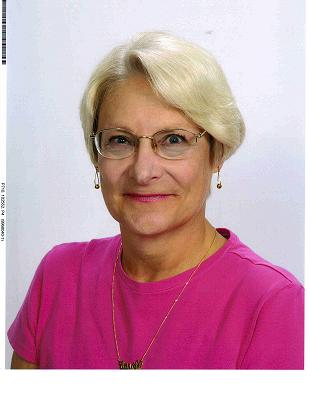Alzheimer’s or Pseudobulbar Affect
Alzheimer’s or Pseudobulbar Affect
By Carole Larkin
I wish I knew about this when my mother was alive. I might have been able to help her. She would suddenly burst into tears for no apparent reason. I’d say, “What’s wrong? What are you sad about? Are you depressed?” She’d say, “Honey, nothing is wrong. I’m not sad about anything. I don’t know why I’m crying, and I can’t stop it.” I’d naturally attribute it to her Alzheimer’s disease. But I was wrong. Now I know that it was really PBA (Pseudobulbar Affect).
PBA is a SEPARATE neurologic disease or condition where the circuitry between the Frontotemporal Cortex (where our emotions reside) and the Cerebellum (which is involved with the control of our emotions) and the circuitry between our Motor Cortex (where the initiation of movement starts) and the brain stem (where control of movement resides). It generally happens along side of other neurologic diseases or events such as Alzheimer’s or other dementias, Stroke, Traumatic Brain Injury, Multiple Sclerosis or ALS (Lou Gehrig’s disease). Its symptoms are sudden, unpredictable short bouts of laughing or crying that are NOT able to be controlled and are NOT reflective of the person’s true feelings at the time. It is estimated that 2 million people have this condition.
What can you DO about it? Well, there is an FDA approved medicine for it called Nuedexta. It is supposed to lessen the number of events or stop them completely in 80% of the people they have tested. That is good news! Also recommended is to distract the person with something else, maybe a funny story or two or a funny video, if it’s the crying aspect of the disease showing. If it’s the laughing part of the disease showing, removing the person to a quiet place and playing some soothing music, or showing them a calming video, of nature or underwater scenes. You can give them a shoulder and neck rub to relax the muscles that tense up when people are very emotional. It also helps the person focus on the sensation of the rubbing or kneading and may serve as a distraction for them. Sometimes coaching them thru deep breathing exercises may help them get over the bout.
How do they feel about it? In one word, EMBARRASSED. Wouldn’t you? What can you do to help them emotionally? Tell them it’s part of a disease. It’s not their fault. You understand it’s something they can’t help. It’s something that will stop on its own shortly. (Because it will stop shortly. Most bouts last only a few minutes.) You love them and you are proud of them, even if this happens occasionally. They aren’t alone in this happening, 2 million others suffer with it too.
What lessons did I learn from discovering this affect exists?
When someone is crying for a short time on a periodic basis, it doesn’t ALWAYS mean that they are depressed. Don’t automatically ask for an antidepressant or to increase the dose if they are already on an anti-depressant. (The less meds the better).
Ask them if they are sad, don’t assume they are. I know that many people with dementia have depression, just don’t assume it always exists.
Listen to what they say when they answer the question why are they crying? If they say, “I don’t know.” Believe them. Very often by the time people reach early midstage in the diseases, they do tell you the absolute truth, as they see it, feel it and think it. Whether it matches our reality is our problem, not theirs. They are not lying to us. They are telling us the way it is to them.
Ask your doctor about these bouts of laughing or crying. Tell him about this article and use the letters PBA when you are explaining what happens. Your family doctor may not know about the existence of PBA (Pseudobulbar Affect). He can research it, and prescribe the drug, if it’s appropriate for your loved one. Side effects and tolerance must be taken into account in that decision, of course.
It’s too late for me, but it may not be for you.
Carole Larkin is a Geriatric Care Manager with ThirdAge Services.
Carole is doing some amazing work in the area of dementia and has nominated for the “Dementia Professional of the year.” By clicking on the logo below you will be taken to a page which will give you more information on Carole, as well as a link to the nomination page.
Phone 214-649-139
For Additional Services and Resources for Dementia and Caregiving



